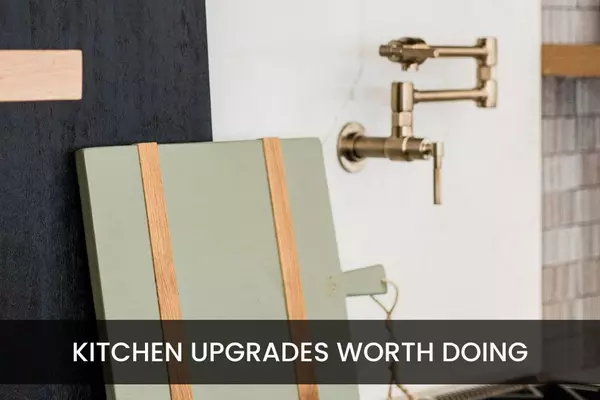What You Should Know About Escrow: A Buyer's Guide
Introduction
Buying a home is one of the most significant financial decisions you'll ever make, and the
process can feel overwhelming. One essential but often misunderstood component of real
estate transactions is escrow. Understanding how escrow works can help you navigate the
home-buying journey with confidence and avoid potential pitfalls. In this guide, we’ll break down
everything you need to know about escrow, including its role in the home-buying process, how it
protects both buyers and sellers, and what you can expect along the way.
What Is Escrow?
Escrow is a financial arrangement where a neutral third party holds funds and documents on
behalf of the buyer and seller until specific conditions of the real estate transaction are met. This
process ensures that both parties fulfill their contractual obligations before any money or
property changes hands.
How Does Escrow Work?
The escrow process typically follows these steps:
1. Opening an Escrow Account – Once the buyer and seller agree on terms, an escrow
account is opened with a third-party escrow company or agent.
2. Deposit of Earnest Money – The buyer deposits an initial amount, known as earnest
money, into the escrow account to demonstrate good faith in purchasing the property.
3. Fulfillment of Contingencies – Both parties work to meet any contingencies outlined in
the contract, such as home inspections, financing approval, and title searches.
4. Review and Approval of Documents – Necessary documents, including the purchase
agreement, title report, and loan documents, are reviewed and approved by the escrow
agent.
5. Closing Process – Once all conditions are met, funds are disbursed, documents are
signed, and ownership is officially transferred.
Why Is Escrow Important?
Escrow serves as a safeguard for both buyers and sellers by ensuring a secure transaction.
Here’s why it’s crucial:
● Protects Earnest Money – If the transaction falls through due to unmet contingencies,
escrow ensures that the buyer's earnest money is refunded (or allocated appropriately
based on the contract terms).
● Ensures Contractual Compliance – The escrow agent ensures that both parties
adhere to the agreed-upon terms before finalizing the sale.
● Facilitates a Smooth Closing Process – Escrow helps coordinate various aspects of
the closing process, preventing last-minute complications.
Escrow and the Home-Buying Process
For buyers, understanding the role of escrow in different stages of home buying is essential.
Here’s how escrow fits into the bigger picture:
1. Opening Escrow
After an offer is accepted, the buyer will deposit the earnest money into the escrow account.
The escrow officer will outline the next steps and manage the transaction from start to finish.
2. Managing Contingencies
Common contingencies that must be satisfied during escrow include:
● Home Inspection Contingency – Allows the buyer to inspect the property and
negotiate repairs if needed.
● Appraisal Contingency – Ensures that the home’s value aligns with the purchase price,
as determined by a professional appraisal.
● Financing Contingency – Gives the buyer time to secure a mortgage loan.
3. Title and Ownership Verification
A title search is conducted to ensure there are no legal claims or disputes over the property. The
escrow agent will also help secure title insurance to protect against future claims.
4. Finalizing the Sale
Once all conditions are met, the escrow agent disburses funds, the deed is recorded, and the
buyer officially takes ownership of the home.
Tips for Buyers Navigating Escrow
To ensure a smooth escrow process, keep these tips in mind:
Buying a home is one of the most significant financial decisions you'll ever make, and the
process can feel overwhelming. One essential but often misunderstood component of real
estate transactions is escrow. Understanding how escrow works can help you navigate the
home-buying journey with confidence and avoid potential pitfalls. In this guide, we’ll break down
everything you need to know about escrow, including its role in the home-buying process, how it
protects both buyers and sellers, and what you can expect along the way.
What Is Escrow?
Escrow is a financial arrangement where a neutral third party holds funds and documents on
behalf of the buyer and seller until specific conditions of the real estate transaction are met. This
process ensures that both parties fulfill their contractual obligations before any money or
property changes hands.
How Does Escrow Work?
The escrow process typically follows these steps:
1. Opening an Escrow Account – Once the buyer and seller agree on terms, an escrow
account is opened with a third-party escrow company or agent.
2. Deposit of Earnest Money – The buyer deposits an initial amount, known as earnest
money, into the escrow account to demonstrate good faith in purchasing the property.
3. Fulfillment of Contingencies – Both parties work to meet any contingencies outlined in
the contract, such as home inspections, financing approval, and title searches.
4. Review and Approval of Documents – Necessary documents, including the purchase
agreement, title report, and loan documents, are reviewed and approved by the escrow
agent.
5. Closing Process – Once all conditions are met, funds are disbursed, documents are
signed, and ownership is officially transferred.
Why Is Escrow Important?
Escrow serves as a safeguard for both buyers and sellers by ensuring a secure transaction.
Here’s why it’s crucial:
● Protects Earnest Money – If the transaction falls through due to unmet contingencies,
escrow ensures that the buyer's earnest money is refunded (or allocated appropriately
based on the contract terms).
● Ensures Contractual Compliance – The escrow agent ensures that both parties
adhere to the agreed-upon terms before finalizing the sale.
● Facilitates a Smooth Closing Process – Escrow helps coordinate various aspects of
the closing process, preventing last-minute complications.
Escrow and the Home-Buying Process
For buyers, understanding the role of escrow in different stages of home buying is essential.
Here’s how escrow fits into the bigger picture:
1. Opening Escrow
After an offer is accepted, the buyer will deposit the earnest money into the escrow account.
The escrow officer will outline the next steps and manage the transaction from start to finish.
2. Managing Contingencies
Common contingencies that must be satisfied during escrow include:
● Home Inspection Contingency – Allows the buyer to inspect the property and
negotiate repairs if needed.
● Appraisal Contingency – Ensures that the home’s value aligns with the purchase price,
as determined by a professional appraisal.
● Financing Contingency – Gives the buyer time to secure a mortgage loan.
3. Title and Ownership Verification
A title search is conducted to ensure there are no legal claims or disputes over the property. The
escrow agent will also help secure title insurance to protect against future claims.
4. Finalizing the Sale
Once all conditions are met, the escrow agent disburses funds, the deed is recorded, and the
buyer officially takes ownership of the home.
Tips for Buyers Navigating Escrow
To ensure a smooth escrow process, keep these tips in mind:
Recent Posts

What to Expect From a Winter Home Inspection

How to Maximize Your Home’s Value Before Selling

The Ultimate Fall Home Maintenance Checklist for Sellers

Top Reasons Buyers Back Out and How Sellers Can Prevent It

Pricing Your Home for a Competitive Fall Market

The Power of Clean: Why a Sparkling Home Sells Faster (and for More)

Why Every Home Buyer Should Start with a Consultation — Not a Showing

How to Find a Pet-Friendly Neighborhood

What You Should Know About Escrow: A Buyer's Guide

Kitchen Upgrades Worth Doing in 2025: Smart, Stylish, and Functional Enhancements for Modern Living
GET MORE INFORMATION

